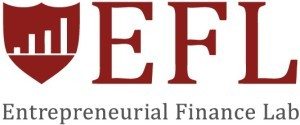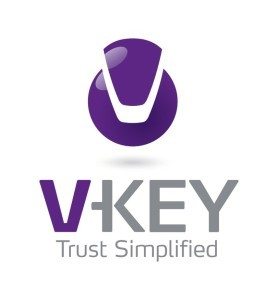
So now to the big half day final of innotribe, where new and innovative firms are recognised in the Start-up challenge.
There are two categories: start-ups and innovators. Start-ups must be less than three years old and innovators qualify as anything innovative. This year, the SWIFT innotribe start-up challenge is sponsored by HP, Sberbank, Invest Northern Ireland and Level 39, and the winners get a cheque for $50,000.
Not bad, but they also get a lot of visibility and recognition.
Launched by SWIFT in 2011, the Challenge travels around the world, with three regional showcases in the US, Asia, and Europe. It provides participants with the unique opportunity to get together and create smart company pitches, facilitate insightful discussions on emerging innovations, and participate in useful networking events.
I’m one of the judges along with many other smart and bright people from around the world, and this year’s contest has been fought heavily between contestants across the world.
This year there are nine start-ups and six innovators selected from over 175 applicants in the Grand Final here in Dubai.
The nine start-ups are: Azimo, Growth Intelligence, P2P cash, KlickEx, Pocketbook, Realty Mogul, twikey, XYverify and Z-CRD.
The first company up is Azimo, who offer a social remittance platform. The average cost of a
remittance is 9% whilst Azimo’s is 2% or less. Azimo already offer services to over 190 countries in 85 currencies, with 150,000+ cash locations. Azimo spend around $35 to acquire each customer, via social media and social networks, and the average customer sends $300 per transaction.
Next up is Growth Intelligence, a real-time data sales tool. The company is based upon lead generating for sales and has clients in all sectors. In banking, they have Barclays, Lloyds and a few others and used Barclays as a reference, saying that one salesperson calling all day to leads generated would typically make one sale per day; now they get 22 sales per day. The way it works is that you tell them who you’ve sold to in the past, and their solution will scan for companies like
them and look for buying triggers, such as new offices planned, and that will spark the lead. It’s all based upon taking the granularity of big data and siphoning it down to narrow leads, usually around corporate data.
KlickEx are now on stage – they got my vote by giving away free Wi-Fi to all attendees! – and they offer CLS for everyone. In other words, they are offering a new global, multicurrency central bank facility to tap into the $600 billion of unbanked money around the world. They’ve already got 100,000 users and are voted the #1 low value payments system by the World Bank in every market they service. They’re regulated in every market and have completed over a million transactions.
The fourth firm to jump onto stage is P2P Cash: Send Cash Home Free! The idea is that banked senders in rich countries send money to their unbanked recipients in emerging economies for free. This is because the company is buying swathes of cash wholesale and then charging consumers FX at retail rates that are as good as or better than Western Union’s. Once money is sent, the recipient
automatically get a mobile wallet created for delivery, and can get cash out by using that mobile wallet. P2PCash makes the money from the FX rates, which they share with the banks that use
them. The good news for the banks is that each transfer created two new customers: the sender and the receiver, with a 20% market share of remittances estimated to be worth $100 billion a year, which would create a $1-$2 billion new revenue stream for the bank.
Pocketbook arrive on stage next, and talk about how we work so hard for our money but have no idea where our money goes, because we have so many accounts that we use for so many different purchases. Pocketbook is a PFM app that can work with every bank an account to show you how you spend. It also, using pattern recognition, tells them what bills are upcoming, which users love.
IT takes just sixty seconds to set up and runs for any bank, any account and it’s free! 35,000 users have signed up so far tracking $6 billion of spending (just in Australia alone!). CNET voted it the best app they’ve ever tested. That’s because Pocketbook created their app by asking: if a Google or Amazon created a bank, what would it look like?
Realty Mogul is crowd funding for real estate. The idea is that investors can pool money online
to buy houses, apartments, stores, offices or anything, and is the Kickstarter of property. The idea is that you find properties you like and make a part investment in that property with the view to getting a high return on the rental yield. It works with real estate firms applying to work with Realty Mogul and, once Realty Mogul does their due diligence, their properties are then offered to
investors. Real estate firms pay for the service on the basis of giving them an immediately qualified investment pool. With zero advertising, they already have $400 million in investment fund leads after five months, generated through investment workshops presented at campuses like Microsoft.
They’re now looking for investment partnerships with banks to take this global.
This led on to ‘the most boring subject of the afternoon, we’re going to talk about SEPA’. At this point, the room almost emptied, but Twikey carried on and talked about the solution for SEPA direct debit mandates. From 1st February 2014, 500,000 Eurozone companies have to switch to the new rules and they have no idea how. They can go back to paper, implement the EPC’s eMandate model or just implement Twikey. It solves the pain points of SDDs (SEPA Direct Debits), especially the acquisition of manatees for new and existing customers, as well as providing easy implementation of SEPA B2B mandates. The service is being sold to banks to offer to their customers and it works, because creditors pay the mandate and storage fees, not the bank.
The penultimate start-up presentation comes from XYverify, an authentication service aimed to reduce fraud. It uses cell antennae’s to check the location of customers with their mobiles to authenticate, and uses the mobile telecom towers, rather than the handset, to ensure it’s not spoofed or false positive, e.g. using the mobile towers to locate the customer is far more robust. Nice figures used: 542 million sensitive records compromised since 2005 and $110 billion in direct consumer hacking costs this year. The model is provided under SaaS monthly access fee subscription and is expanding internationally.
Our final presentation of the Start-up Challenge came from Z-CRD, a new payment network that provides a modern alternative to Visa, MasterCard and AMEX by taking out the middle man. Z-CRD uses the mobile app to communicate direct between the issuing banks and point-of-sale, saving 65% of the transaction costs as a result. By cutting out the middle man, the transaction fee is reduced from 3% to 1% flat fee, plus referral fees on top. To use it, all that’s required is for the cash register to have the Z-CRD app running and configured, and that’s it. Receipts are stored in the cloud and can be retrieved anytime. That means any transaction can easily be disputed using the app too. Finally, rewards are based upon easy methods such as recommending a hotel you stayed at on Facebook. If one of your friends then stays at the hotel, he gets a discount and you get
cashback. It’s simple and easy, and no waiting. The company has six people and $3 million funding.
It will be interesting to see who gets the vote here and the theme is very much about mobile disruptive models. My vote goes to P2PCash, for having the most slick presentation, and KlickEx for giving us all free Wi-Fi in this session so that, for once, I could post this blog without having to leave.
The second part of the Start-up Challenge is for innovators, any company that has an innovative product or service. The six finalists this year are:
 | Have a look at the Semi-Final pitch. |
 | Have a look at the Semi-Final pitch. |
 | Have a look at the Semi-Final pitch. |
 | Have a look at the Semi-Final pitch. |
 | Have a look at the Semi-Final pitch. |
 |
GIEO operate like a Google map of people, places and events within a bank, interconnecting the four main pillars of banking operations: visualised business processes, screen simulations of IT systems, ebooks of regulations and business performance.
Quantum4D provides a visualisation tool of data applied to anti-money laundering.
EFT is the Entrepreneurial Finance Lab, an emerging market credit-scoring technology that uses psychometric principles and non-traditional data to generate highly predictive credit scores.
Virtual Piggy is focused upon providing global payment services for the online spending of under 18s in a parent approved manner.
V-Key simplifies mobile application protection and unifies enhance customer experiences via mobile devices.
Finally Waratek has solved the problem of how to use Java in banking for virtualisation and private clouds.
I'll be interested to see who wins out of that lot.
Chris M Skinner
Chris Skinner is best known as an independent commentator on the financial markets through his blog, TheFinanser.com, as author of the bestselling book Digital Bank, and Chair of the European networking forum the Financial Services Club. He has been voted one of the most influential people in banking by The Financial Brand (as well as one of the best blogs), a FinTech Titan (Next Bank), one of the Fintech Leaders you need to follow (City AM, Deluxe and Jax Finance), as well as one of the Top 40 most influential people in financial technology by the Wall Street Journal's Financial News. To learn more click here...

